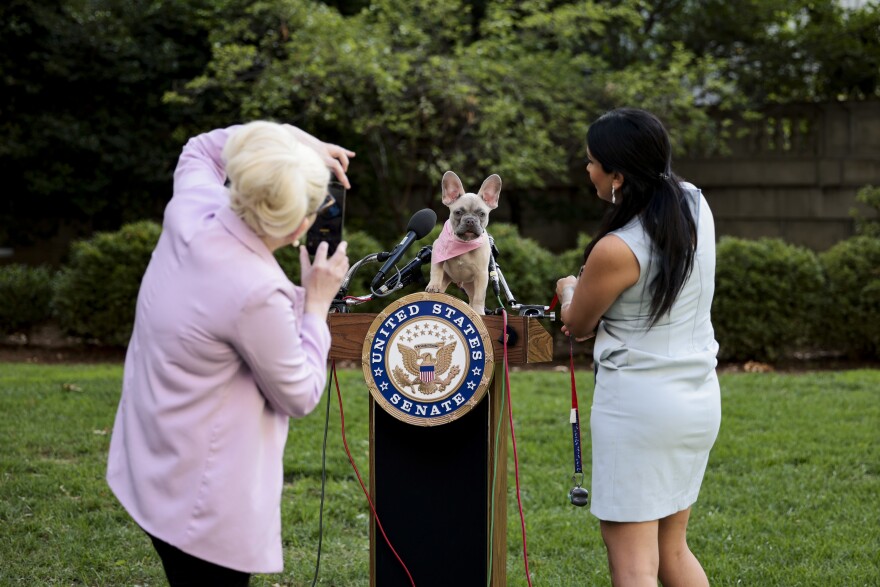A new U.S. law has eliminated the requirement that drugs in development must undergo testing in animals before being given to participants in human trials.
Animal rights advocates have long pushed for such a move, and some in the pharmaceutical industry have argued that animal testing can be ineffective and expensive.
Sen. Rand Paul, R-KY, who sponsored the FDA Modernization Act 2.0, said in a statement that the new law will help end the "needless suffering and death of animal test subjects" and will "get safer, more effective drugs to market more quickly by cutting red tape that is not supported by current science."
PETA cheered the new law as a "radical shift" in how new drugs and treatments will be created.
Signed by President Biden in December as part of a larger spending package, the law doesn't ban the testing of new drugs on animals outright.
Instead it simply lifts the requirement that pharmaceutical companies use animals to test new drugs before human trials. Companies can still test drugs on animals if they choose to.
There are a slew of other methods that drugmakers employ to assess new medications and treatments, such as computer modeling and "organs on a chip," thumb-sized microchips that can mimic how organs' function are affected by pharmaceuticals.
But Aliasger Salem, a professor at the University of Iowa's College of Pharmacy, told NPR that companies opting to use these alternative testing methods as a replacement for animal testing must be aware of the methods' limits to ensure their drugs are safe.
"The companies need to be aware of the limitations of those technologies and their ability to identify or not identify potential toxicities," Salem said.
"You don't want to shift to systems that might not capture all of the types of toxicities that have been seen in the past without ensuring that the methods that you have will capture that."
An FDA spokesperson told NPR that it will "implement all applicable provisions in the omnibus and continue to work with stakeholders to encourage the development of alternative testing methods."
This year's federal budget also includes $5 million for a new FDA program aimed at reducing animal testing by helping to develop and encourage industry to adopt new product testing methods, the spokesperson said.
The National Association for Biomedical Research, which supports testing drugs in animals, says animal testing in conjunction with human trials "remains the best way to examine complex physiological, neuroanatomical, reproductive, developmental and cognitive effects of drugs to determine if they are safe and effective for market approval."
The new law amends the U.S. Federal Food, Drug, and Cosmetic Act, which was originally passed in 1938.
Copyright 2023 NPR. To see more, visit https://www.npr.org.



